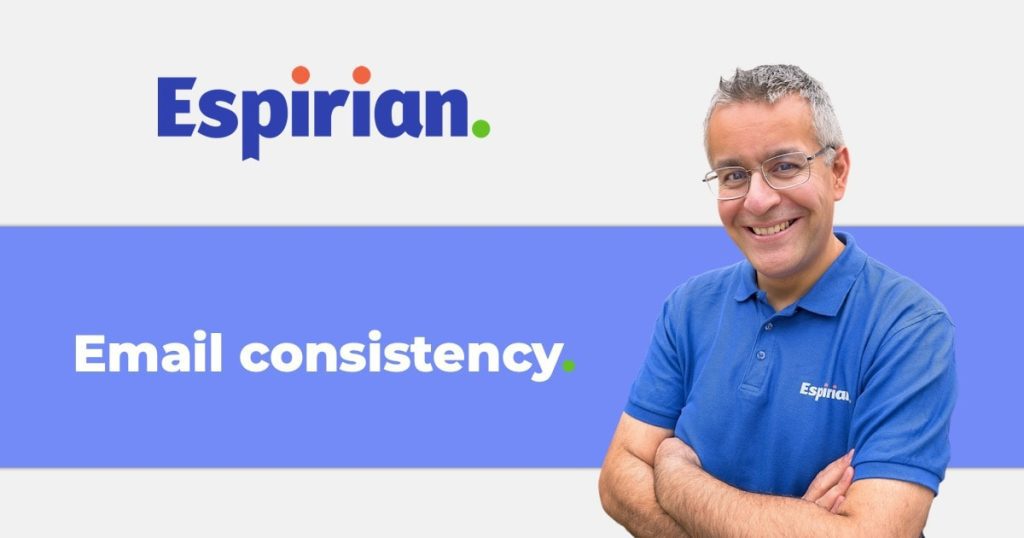Does a regular email schedule matter to your readers?
You know it’s important to have an email list so that you can have a direct route to communicate with your audience.
But do your readers pay more attention to regular messages?
- Introduction
- My audience’s replies via
- Top tips for sending better emails
- Let’s wrap up
Introduction
I put out this question about email regularity because I wanted to make sure I was delivering the best experience to the 1535 subscribers on my Espresso ☕️ mailing list.
So, I asked my audience by email and on social media. Here are the results.
My audience feedback via LinkedIn
I recently asked this question on LinkedIn, and my post received more than a hundred comments.
The prevailing feedback was that quality matters more than quantity or regularity.
Most respondents didn’t seem bothered about emails arriving on a regular schedule, and many of them didn’t notice on which day they received messages from their various subscriptions.
This was typical feedback:

Anna Iveson
I’m not sure I would even realise if I was receiving a newsletter regularly on a certain day of the week. If it looks interesting I’ll open it…if it doesn’t I’ll ignore it, regardless of which day I receive it.

Victoria Doxat
For me, I really don’t keep track of what day of the week/month I receive emails from mailing lists and I don’t care either! As long as the emails are regular, interesting/useful and consistent in their content I really don’t think it matters when they are sent.
The next points by Catherine and Lucy are particularly interesting.

Catherine Berry
I’m a lover of variety, adventure is in my nature! Hence if I think something is predictable I’m put off. Emails are a great example. I subscribe to an email list if I’m interested. I open the emails to begin with because I want to know more. After that I only open the emails if I think they might continue to interest me or the subject line catches my attention. I’m not looking out every week awaiting anyone’s emails. If I have time, I’m interested, the subject line catches me I’ll open.

Lucy Griffin-Stiff
Consistent and predictable can also equal boring. I personally prefer not to get too much email or it puts me off a person. Sending valuable stuff – as and when – works for me. I get so many emails that the day often gets lost on me – I need to do another unsubscribe splurge.
I’m going to talk about the potential peril of predictability in my book, Content DNA.
Some people did care about consistency of email delivery:

Jill Larmer
Personally I like consistency and regularity if for no other reason than if I know a message might come on a certain day I can prepare a question or action on it without contacting the sender at random times when it may not be convenient for them. It just seems to be a smarter use of time and people are usually in the desired “headspace”.

John Jocham
I seem to be swimming against the tide here John but I like the consistency of a fixed time and day. Since I’m not necessarily monitoring my feed every day there’s the FOMO issue if it’s not regular- I don’t necessarily want to be scrolling back for something that may not be there- I realise that makes me sound selfish and needy
My audience feedback via Twitter
I also posed the question on Twitter. There were 123 votes: 74% said it a regular schedule didn’t matter and 26% said it did.
You subscribe to a mailing list. Would you rather receive messages on the same day each week or doesn't it matter?
— John Espirian (@espirian) May 7, 2019
Here are a couple of the responses:
I don’t think it matters, but then I don’t know what day of the week it is half the time anyway Quality is way more important – if the quality is spot on, I’ll look out for it. That being said, nobody wants to receive *too many* emails. That gets annoying.— Kristina Adams (@KristinaAuthor) May 7, 2019
Makes no difference to me, the content itself is what interests me. If it engages me, I’ll read it no matter what day of the week it arrives.— Hollie Sherrington (@HollieWriter) May 7, 2019
Although I was asking the question from the point of view of what’s best for the reader, it’s also important to keep in mind what suits us as content creators:
From the writers perspective, I think it makes it easier to be consistent by always knowing which day you are sending your emails out.— Dale Broadhead (@conversiondale) May 7, 2019
My audience feedback via email
Almost everyone who replied to my Espresso ☕️ email about this said that regularity didn’t matter to them.

Megan Stolz
I used to manage our weekly newsletter at my office job, and we had a set day/time that it delivered. There was value in consistency on our side, though: it helped with scheduling our workflow, and it also helped with scheduling other emails that went out to members. We didn’t want to send out too many on one day.
And some people were just straight up nice:

Sarah Townsend
Doesn’t matter when the content is this good
Top tips for sending better emails
Here’s what I keep in mind when I send messages to my mailing list:
- Make your emails about a single subject: One message, one idea.
- Keep it snappy: War and Peace is a particular turn off in email. Short is good.
- Go easy on the sales messages: If more than 1 in 5 emails contain something about selling your products or services, don’t expect people to hang around long.
- Use a consistent tone: Your emails aren’t seen in public but they should still have the same “voice” as what you write on your website and on social media. Be the same shape everywhere
Regularity might not matter but “being around” does
The overall feedback suggests that a regular email schedule isn’t necessary.
But that’s not licence to disappear for months at a time and risk your subscribers forgetting who you are.
Keep yourself top of mind by staying in touch with your audience.
Let’s wrap up
A strong majority of my audience said they didn’t care about whether email list messages were regular. They were far more interested in the quality of the message.
Dial down the sales and dial up the value. If you can give people something interesting, relevant and helpful, you’ll build trust with them – and the sales will come naturally.


